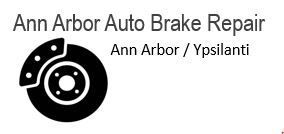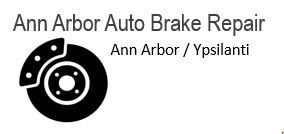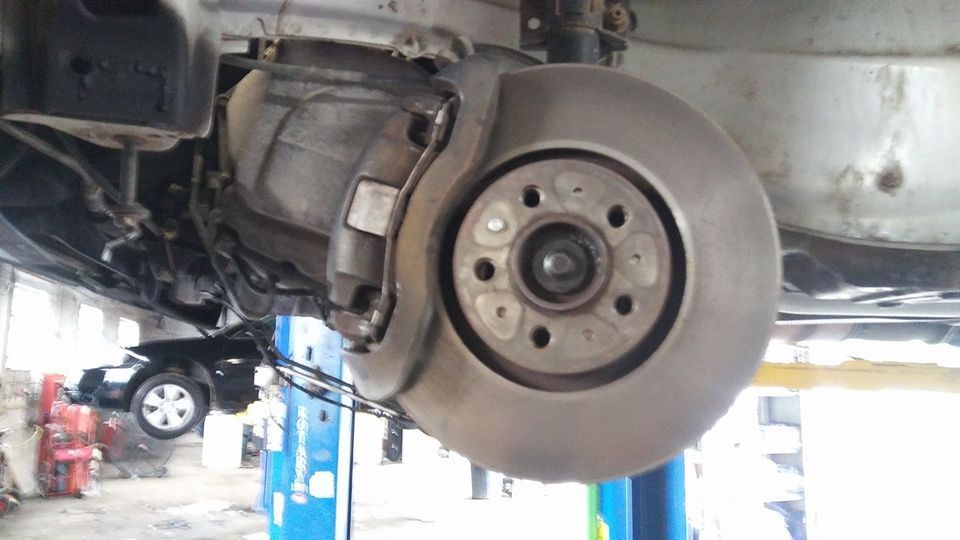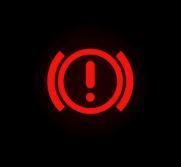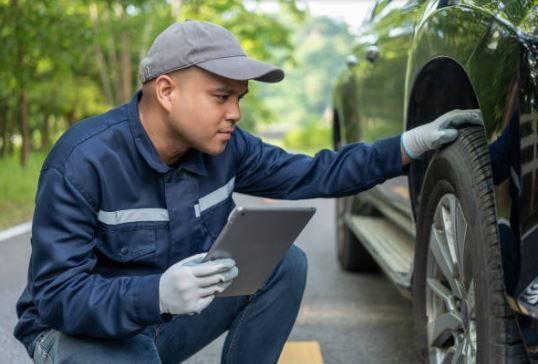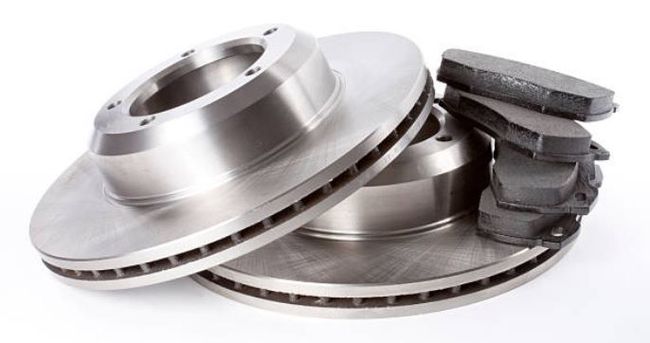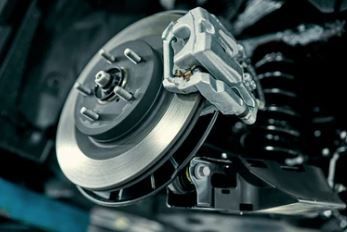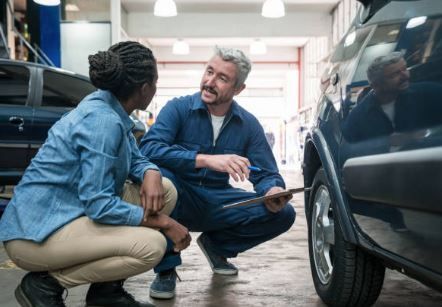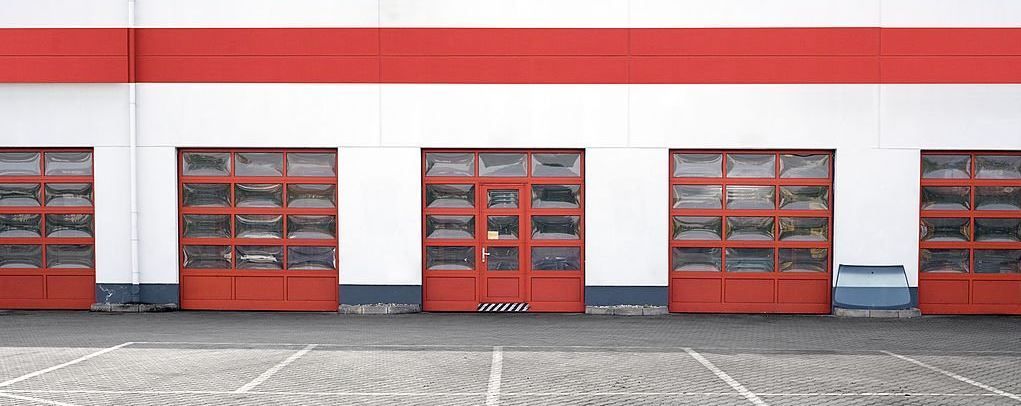Why is my dashboard brake light on?
If the brake light indicator light appears on your dashboard, your car is signaling you that it may be time for regular brake maintenance or to alert that there may be a potential problem. It means that it is time to diagnose and remedy the reason that caused the light to appear.
What is the average number of drivable miles between brake changes?
The average recommended interval for changing automotive brake pads typically ranges between 30,000 to 70,000 miles, although this can vary based on driving habits, vehicle type, and the specific brake materials used. According to Consumer Reports, many drivers should consider replacing their brake pads every 50,000 miles, while Edmunds suggests that some vehicles may require earlier changes depending on the conditions in which they are driven, such as frequent stop-and-go traffic or mountain driving. It's important to regularly inspect your brakes and consult your vehicle's owner's manual or a trusted mechanic to determine the best maintenance schedule tailored to your driving style and conditions.
Why are my brakes making a grinding noise?
Grinding noises when applying the brakes typically signal that your vehicle's brake system requires immediate attention. This unsettling sound usually arises when the brake pads have worn down entirely, leading to metal-on-metal contact. When the padding is depleted, the brake pads can scrape against the rotor, or in the case of drum brakes, the shoe may grind against metal surfaces. Promptly replacing the brake pads is essential to prevent further damage and ensure safe driving pads is essential to prevent further damage and ensure safe driving.
Why are my brakes squeaking?
Squeaking noises from your brakes often indicate that maintenance is needed, but they may not necessarily point to an expensive repair. Commonly, these sounds can result from a small object, like a stone or debris, lodged between the brake pad and rotor. However, a more serious cause could be the wear and tear of your brake pads. As the pads degrade, small metal components within them can make contact with the rotor, producing that distinctive squeaking sound when you apply the brakes. It's important to have your brakes serviced promptly to address any wear and ensure your vehicle's safety on the road.
Why are my brakes pulsing or vibrating?
If your car shakes, vibrates, or wobbles when you apply the brakes, it may indicate that your brake rotors have become uneven in thickness. Brake rotors are smooth, round metal discs located inside your wheels, and when they become warped or unevenly worn, they can cause noticeable vibrations during braking. If left unaddressed, this uneven wear can accumulate, worsening the issue over time and impacting your vehicle's safety. It's essential to have your brakes serviced promptly to resolve this problem. Bring your vehicle in for professional inspection and resurfacing of your brake rotors to restore smooth braking performance.
How do I know if my car is leaking brake fluid?
If your vehicle doesn't stop as quickly as you expect, it may be a sign of leaking brake fluid, which poses a serious safety threat. Brake fluid is crucial for creating the hydraulic pressure needed to engage the brake calipers effectively. Insufficient fluid levels can lead to diminished braking performance, jeopardizing the safety of all occupants in the vehicle. If you suspect a brake fluid leak, it’s imperative to have your car serviced immediately to avoid potential accidents. We strongly recommend visiting our brake shop professionals as soon as possible to address any brake fluid issues and ensure your vehicle remains safe and responsive on the road.
Why do my brakes make a burning smell?
A burning smell coming from your vehicle's brakes can be a sign of overheating, often caused by factors such as excessive friction, worn-out brake pads, or even a malfunctioning brake caliper. If you encounter this burning odor, it’s crucial to pull over to a safe location immediately and allow the brakes to cool down. First, check to ensure that the parking brake is not inadvertently engaged. If you notice smoke coming from a wheel, this could indicate a brake caliper that has locked up, which can compromise your safety and make it unsafe to continue driving. In such situations, it's vital to have your brakes serviced as soon as possible to prevent further damage and ensure optimal performance
Why does my car pull to one side when I am braking? If your vehicle pulls to one side when you apply the brakes, it could indicate a problem with a brake hose or a malfunctioning brake caliper. This issue can lead to uneven brake engagement, causing the vehicle to steer toward the side with less braking force. If you experience this pulling sensation, it's essential to safely steer your vehicle to the side of the road and stop. Continuing to drive under these conditions can compromise your safety and increase the risk of an accident. We strongly recommend having your brakes serviced as soon as possible to identify and rectify the underlying issue, ensuring that your vehicle maintains balanced braking performance.
